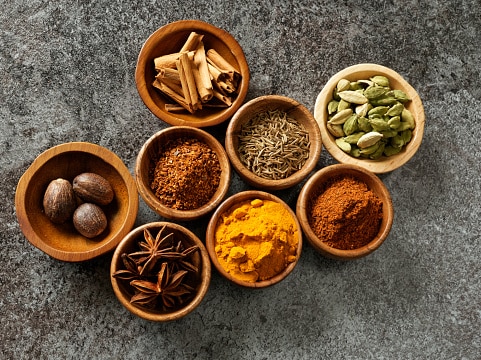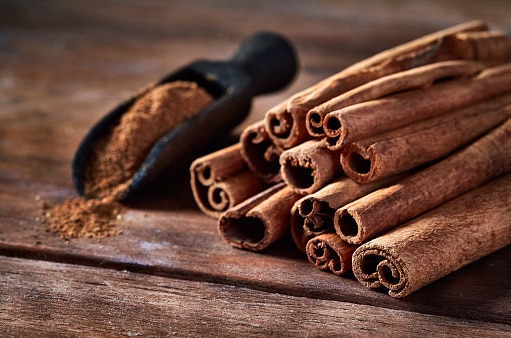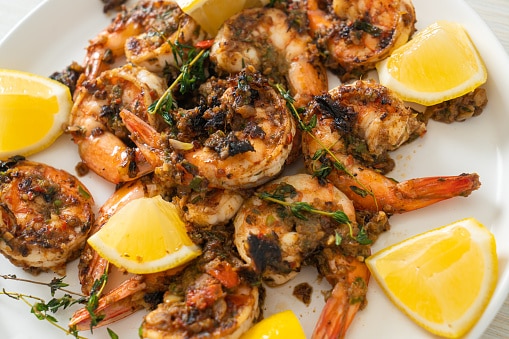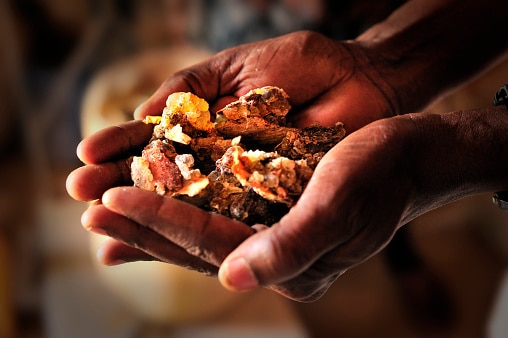The Aroma Of History: How Spices Weave The Tale Of Culinary Traditions
Beyond its culinary use, spices have a fascinating history of trade, culture exchange, and medicinal properties.

New Delhi: From the kitchens of ancient civilizations to the modern culinary world, spices have played an important role in shaping human culture and cuisine. Beyond its culinary use, spices have a fascinating history of trade, culture exchange, and medicinal properties. This article explores the hidden stories behind some of the world’s most beloved spices, highlighting their important origins and impact on global culture.
Varieties of Spices:

Spices as cultural treasures
Throughout history, spices have been viewed as treasures across borders and continents. The ancient world’s spice trade was linked to civilization and made possible the exchnge of not only flavours but also ideas, languages and cultures. From the Silk Road, which connects the east and the west, to the Sea Spice Road, which runs along the ocean, spices are values that symbolize wealth, power and status. The lure of these exotic species makes explorer.
Culinary magic: Transforming Food and Flavors
The mysterious life of spices lies in their incredible ability to transform ingredients into extraordinary foods. A pinch of cinnamon can carry away the floral aroma, while a pinch of saffron can turn a meal into a work of art. Spices not only add depth and complexity to a dish, they also tell the story of its origin. The heat of pepper has returned to America, while cardamom tells the story of the East.
Spices are used because of their antibacterial properties as well as enhancing flavor. In the days before refrigeration, these aromatic stones helped extend the shelf life of perishable foods, allowing communities to store food for long periods of time for harsh winters or sea travel.
Cinnamon:

Healing in every bite:
The cultural significance of spices goes beyond cooking. Many spices are valued for their medicinal properties. The ancient Egyptians used herbs and spices known for their ability to preserve the dead body in the mummification process. Ayurveda, traditional Chinese medicine and ancient Indian medicine, includes spices such as ginger and turmeric for their curing properties. These practices have left an invisible mark on modern herbal medicine and holistic health.
Spices as status symbols
Spices are also associated with cultural identity. Traditional dishes flavored with local spices are symbolic of the culture and values of the society. For example, garam masala in Indian cuisine, za’atar in Middle Eastern cuisine, and jerk seasonings in Caribbean cuisine reflect historical symbols and culinary legends. The aroma of these spices can evoke feelings of nostalgia, connect people to their roots and develop a sense of belonging.
Jamaican Jerk Seasoning

Symbolism in rituals:
Spices are also included in religious rites. Frankincense and myrrah are considered powerful spices that have been used in many spiritual practices for centuries. It is believed that their sweet scent purifies people and connects them to the God. Likewise, in Hinduism, burning increase and offering spices in rituals is a sign of piety.
The world of flavor fusion:
Spices continue to enter the world on our plates when we come to the present day. Cuisine from different parts of the world come together to create a culinary environment rich in flavor and texture. The use of spices crosses national borders to create new dishes that celebrate diversity and emphasize the relationship between cultures.
Frankincense

Conservation and Adaptation:
Spices have a deep history, but have also been adapted to modern lifestyles. Innovations in food storage, transportation and marketing have made spices more popular than ever before. Thanks to these developments, we can now enjoy traditional and modern tastes.
Challenges and Sustainability:
The spice story has its challenges; climate change, deforestation and inefficient agriculture threaten the ecosystems that support agriculture. As consumers, we have a responsibility to support production and sustainable production so that future generations can enjoy the sweets we love.
The secret life of spices is a story spanning centuries, continents and cultures. These humble ingredients changed history, connected society, and shaped the world we know today. From ancient trade routes to modern culinary innovations, spices continue to prove the unifying and inspiring power of flavour. When we smell the aroma of our food, let’s appreciate the rich historical and cultural importance that spices add to our lives.
Related Video
Union Budget 2024: Nirmala Sitharaman Reaches Parliament Ahead Of Budget Presentation Today | ABP News






































